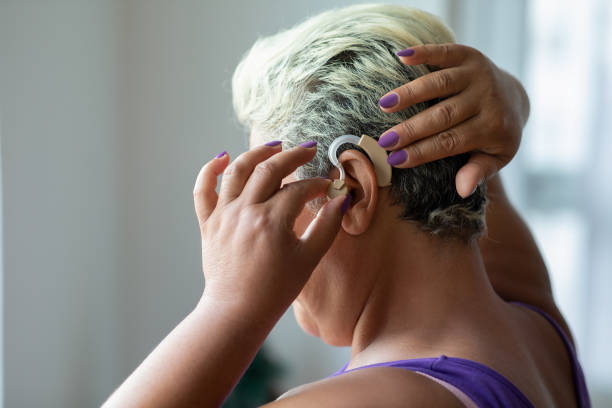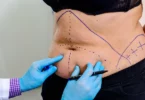There are many causes of hearing loss, including excessive and persistent noise damage, trauma, and disease. The severity of hearing impairment can range from mild to severe, with aging being the leading cause of hearing loss and tinnitus in the elderly.
The noises of tinnitus may vary in pitch from a low roar to a high squeal, and you may hear it in one or both ears. In some cases, the sound can be so loud that it interferes with your ability to concentrate or hear external sounds.
Sufferers often ask people to repeat themselves and begin to listen to music or TV at much higher volumes. Speaking on the phone becomes more of a challenge, as does keeping up with conversations.
What are some potential causes of tinnitus?
Tinnitus can be a result of simple earwax buildup, noise damage, trauma, infections, or more serious medical conditions. Think of tinnitus as a symptom, not a disease, which can therefore be a result of any of the following causes:
- Loud and persistent noise for long periods of time.
- Earwax or fluid buildup in the eardrum and the inner ear.
- Trauma to the eardrum, such as a puncture from an object or cotton bud.
- An infection, virus, and/or bacteria from any number of sources.
- Diabetes or high blood pressure (common among the elderly).
- A heart condition, brain injury, stroke, or tumor in the brain.
- Certain heart disease medications can damage the inner ear, sometimes permanently.
- Ototoxic medications, such as antibiotic drugs used for a variety of cancers or serious infections.
- Simple aspirin (depending on the dosage) can cause problems.
Given the potential side effects to your hearing with medications, it is advised to always check with your doctor and consult with your pharmacist to report any hearing problems you may experience.
Can tinnitus be treated?
Your family doctor may be able to diagnose and treat your hearing problem. Or, you can go for a hearing test.
You can also book a no-cost, no-obligation hearing test with a hearing healthcare professional in a conveniently located clinic. For many sufferers, tinnitus can be treated by any of the following options:
- Hearing aids are prescribed by a doctor with an ear specialist consultation.
- Non-prescription, newly regulated over-the-counter noise amplifiers.
- Cochlear implants are permanent electronic devices for severe tinnitus.
- For moderate tinnitus, tinnitus retraining therapy is promising, and when used in conjunction with other modalities, the results are even better.
- Notched sound therapy is used to neutralize sounds, which can help distract the patient from the constant tone of tinnitus.
- Acupuncture could help make tinnitus sounds quieter and less severe.
- Hypnotherapy as a method of deep relaxation has shown positive effects.
- Anti-anxiety medications can sometimes be the answer for tinnitus sufferers.
- Relaxation techniques, such as deep breathing and yoga, can alleviate stress, which can stimulate an already sensitive hearing system.
- Mobile apps that send visual signals or vibrations are not treatments but are helpful coping devices (such as a visual doorbell or phone).
- Alerting devices that use visual cues, such as smoke detectors and carbon monoxide detectors.
How does notched sound therapy work?
Some sufferers of tinnitus seeking relief have turned to notched sound therapy with a tremendous result. Others have not been as fortunate in reducing the intensity of their tinnitus tone. As a relatively new therapy, the jury is still out on why the results vary so much from patient to patient. Despite the lack of a cure, research is ongoing, and the future looks promising.
Notch sound therapy was originally refined from music therapy for returning soldiers in the 1940s. This rehabilitation treatment led to sound wave therapy beginning in the 1950s. Pioneered by British osteopath Sir Peter Guy Manners, the first machine was designed to produce healing sound vibrations.
The science behind notched sound therapy is that healing sounds are customized or “notched” for the subjective tinnitus frequency of the patient and play the sound around it rather than matching the pitch of the tinnitus tone. The non-scientific explanation of the process is that the hearing specialist determines the pitch of the patient’s tinnitus and then turns a “notch” in the hearing device that corresponds to that pitch.
Notched sound therapy can lessen the intensity of your tinnitus tone. Tinnitus is often most noticeable in quiet environments, and thus, the aim of “sound therapy” or “sound enrichment” is to fill any silence with neutral sounds as a distraction.
The Advantages and Disadvantages of Using Notched Sound Therapy
By listening to this therapy consistently, you can reduce the volume of your tinnitus and ease the considerable suffering that it can cause. Notched sound therapy can also provide a psychological distraction to the tinnitus sounds, thus helping you relax. Here are some of the benefits:
- Unobtrusive treatment, as it does not use distracting sounds or static noises.
- Portable treatment when used with a hearing aid.
- Prompt treatment results, with many notched sound therapy patients reporting results in weeks or months.
- Better hearing can be achieved with the absence of the persistent tone of tinnitus.
- Physiological changes in sensitivity in the hearing parts of the brain.
- Psychological distraction from irritating sounds helps you to relax.
The disadvantages of notch sound therapy are limited but include a note of caution. It is important to ensure that the audio played to push the tinnitus noises to the background is not too excessive.
In general, people with tinnitus are more sensitive to sounds with a condition called hyperacusis (sensitivity to sound), which could make them more susceptible to constant noise, as used in notch sound therapy.
What to Do if Tinnitus Is Irritating You
With a hearing screening, you can discover many diseases and health issues that you may not be aware of (and which may not present any symptoms). A regular hearing examination will allow you and your hearing care provider to:
- Diagnose medical conditions. While most hearing loss can be caused by aging, some loss could be a result of an underlying medical condition. Diseases such as diabetes may cause hearing problems, while high blood pressure has been linked to both tinnitus and hearing loss.
- Identify potential problems. A yearly hearing test will allow you to track changes in your hearing and make adjustments as you need them. Every time you take an audiogram, your hearing specialist can compare it to your previous one to see how rapidly your hearing is changing and alerting you to any potential dangers.
- Prevent further damage. If hearing problems are allowed to progress, patients may suffer depression or anxiety in public situations, which can cause isolation due to the limitations of their conditions.
- Begin treatment. Identifying a mild hearing problem can actually be a good thing, as it allows you to prevent hearing loss from worsening. Book a complimentary hearing test with an experienced Audiologist or Hearing Instrument Specialist.
A lack of evidence supports or refutes the effectiveness of individual sound therapy options, and clinical trials have shown only a small reduction in overall tinnitus tone volume. As a result, it is too early to draw definitive conclusions. However, notched sound therapy is available to individuals seeking to experiment and make their condition potentially more manageable.
AUTHOR’S BIO:
Erin Gregory is a Toronto-based blogger and Community Manager at Hearing Solutions, a leading provider of hearing healthcare services in Canada. She holds dual degrees in Business Administration and Creative Writing from the University of British Columbia. As an advocate for hearing health, Erin is passionate about promoting awareness and accessibility to hearing solutions. Check out Hearing Solutions Online Hearing Test to take the first step towards better hearing.








